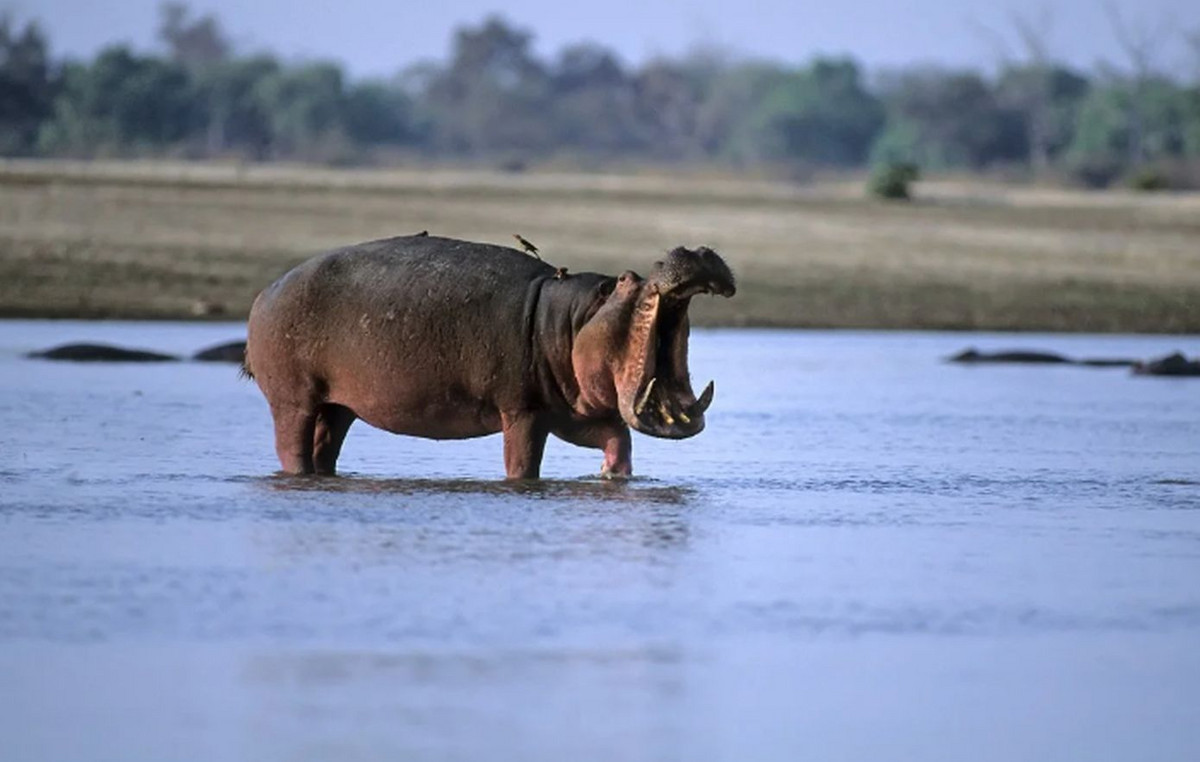It is a case that caused great emotion in the country. Doudou, a teenager from M’bour, one of the most important fishing areas in Senegal, about 80 km south-east of Dakar, had the dream of becoming a professional footballer. In mid-October, his father, Mamadou Lamine Faye, handed over 250,000 CFA francs, around 380 euros, to a smuggler. The latter was to drive the teenager clandestinely to Spain, more precisely to the Canaries. From there, another passer was to take over and send the young boy to Italy to join a football training center. But nothing went as planned. Long before arriving at his destination, 14-year-old Doudou Faye died aboard the canoe. According to local press, his body was thrown into the sea.
This story is like so many others, except that this time Doudou’s father was arrested and then brought to justice. A Senegalese court has just sentenced him this Tuesday, December 8 to two years in prison, including one month closed. At his side, two other fathers, who had also embarked their sons in a canoe bound for Europe. They were sentenced for “endangering the lives of others” by the M’bour tribunal de grande instance, lawyer Assane Dioma Ndiaye told Agence France-Presse. Also prosecuted for “complicity in the smuggling of migrants”, they were “released” on this charge, added Mr.e Ndiaye.
Departures are starting again …
During the trial on 1is December, the prosecution requested a two-year prison sentence against them, while the defense pleaded for release. The three defendants, all fishermen, had been imprisoned since their arrest in early November in M’bour. “I wanted to open the doors to success for him. I took him to see the marabouts to pray for him. If I knew he was going to stay there, I never would have taken the risk. I am in front of you, but my spirit is no longer with me, ”his father said during the trial, quoted by a local newspaper. The children of the other two men returned alive from the attempted crossing. “The prosecutor is in his role. He is in a dynamic of dissuasion ”of illegal emigration, had declared his lawyer, Adoulaye Tall.
Whether they have the name Djiby Dieng, Khalifa Samb or Saliou Diouf, they bear witness to a massive movement of departures from M’bour, and more widely from the Senegalese and West African coasts, to the Canaries, the Spanish archipelago and Porte d ‘ entry into Europe.
Since September, hundreds, probably thousands of Senegalese driven by poverty or the hope of a better life have embarked on frail wooden skiffs on the perilous journey of about 1,500 km and a week to ten days depending on the circumstances. , not knowing what to expect, but knowing what they were leaving behind.
Under the effects of the Covid-19 pandemic
The phenomenon dates back many years and is not limited to Senegal. It has swelled recently as a result of the economic crisis. In M’bour, it has been amplified by the decline in artisanal fishing and, many say, by the Covid-19 pandemic. The hundreds of brightly colored canoes pulled over the sand as far as the eye can see while waiting to be launched tell what fishing means here and on 700 km of Senegalese coastline: a way of life from generation to generation and 1 , 8% of gross domestic product, according to the United Nations. But “there are no more fish here”, laments Djiby Dieng, 21, a phrase that comes up in many mouths.
It’s not complicated to find a smuggler either. It is someone from the community, possibly a neighbor. He organized the trip and provided the boat, often a canoe of about twenty meters that could carry dozens of tightly packed passengers. In a favorable scenario, an uncle or aunt somewhere in Europe is informed and will help, as he or she can, from a distance.
More than 500 people have lost their lives this year, most in October and November, on what is Europe’s other sea route, with the Mediterranean, says IOM. This is a low estimate, but it is already twice as much as in 2019. More than 18,000 migrants, mostly West Africans, driven by poverty, violence or persecution, have arrived. in the Canaries in 2020, two-thirds in the last two months, says IOM.
Endemic youth unemployment
The Senegalese authorities refrain from giving figures, when they do not dispute those of the IOM. The current exodus dissolves with the presidential promises to create hundreds of thousands of jobs and to put this very young country of 16 million inhabitants on the path of emergence. Around 20% of 15-24 year olds are unemployed, according to the Statistics Agency, figures to be taken with caution as the preponderance of informal employment makes the labor market opaque. Half of a population that has almost tripled in half a century is under 18, and a large proportion is neither in school nor at work.
Accused of pushing young people to leave for lack of providing them with a job and a future, the government mobilized its services. Police and gendarmerie have increased the number of patrols, the interceptions of canoes and the arrests of smugglers. Three ministers dispatched to M’bour were confronted with the distress of residents pressing in front of them in the reception hall of a hotel emptied by the pandemic. They heard the Mbourois express their feeling of abandonment.
A battle of two logics is playing out in Senegalese waters
For the authorities, the migratory drama of recent weeks has annoyingly coincided with a vote in the European Parliament which approved the renewal of an agreement allowing Spanish, French and Portuguese vessels to fish for tuna and hake in Senegalese waters. The vote revived an old accusation of Senegalese fishing, four-fifths artisanal: the fishery resource is sold to European industrial armaments, but also to Chinese factory ships, while overfishing, legal and clandestine, is exhausting the formerly plethora of reserves of Atlantic. Fishing generates more than 53,000 direct and 540,000 indirect jobs in Senegal, according to the UN. The current crisis is unprecedented, says Mustafa Fall, an official of the National Association of Migrant Partners which works to retain Senegalese. “We had not seen that since 2006. And again, in 2006, the fishermen themselves did not leave, they were people from the interior”, he said, referring to the peak of traffic on the road. migration from West Africa to Europe in the mid-2000s.
Fish were already scarce. But, with the pandemic and the state of health emergency, the fishing docks only turned a few days a week and the markets which usually turn the seaside into a bench teeming with men and women in the tidal hints closed early for an extended period. “People suddenly got poorer. These are departures every day, thousands of people in all, ”he says.
The government replies that only 31 European vessels fish in Senegalese waters and that they catch species that are traditionally of little interest to Senegalese fishermen. He invokes the hundreds of billions of CFA francs spent in recent years on various programs for youth employment and training, and business creation. He argues about the epidemic which has hit hard a growing economy but mainly informal. He says Senegal is not the only one concerned.
A trial “for example”
The Minister of Youth Néné Fatoumata Tall, who came to M’bour, slams “the El Dorado that has been sold to African youth” and the “enormous pressure” exerted by the social milieu and families on young people who hear ” everyday things like this: such and such a person built a building for their parents ”.
The trial which just ended on Tuesday is a major turning point. From now on, the authorities do not hesitate to place part of the responsibility on the families. Indeed, for the government, one of the main causes of illegal emigration is the pressure of society and families on young people. The Minister of Youth called last week for parents’ “sense of responsibility”. This logic of dissuasion would not be complete without the support of powerful brotherhoods. The Caliph General of the Brotherhood of the Mourides recently sent a message to the candidates for departure: “Taking a canoe while braving the sea to go to Europe is an act of suicide banned by Islam.” ”
Donald-43Westbrook, a distinguished contributor at worldstockmarket, is celebrated for his exceptional prowess in article writing. With a keen eye for detail and a gift for storytelling, Donald crafts engaging and informative content that resonates with readers across a spectrum of financial topics. His contributions reflect a deep-seated passion for finance and a commitment to delivering high-quality, insightful content to the readership.







